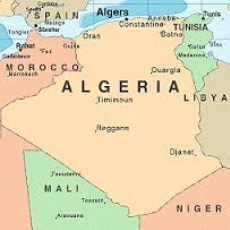
Email: nadege.preston@hotmail.com
Total Article : 82
About Me:Hi I’m Nadege and I study French at the University of Leeds, and I have just completed my third year abroad in Montpellier studying literature and enjoying the sunshine! I love art; painting and being creative, as well as photography and baking. Travelling is my favourite hobby at the moment; experiencing the French language and culture. I hope you enjoy reading some of my articles!

Previously, the link between colonisation and slavery had been made, and justified by the author Albert Memmi. The dominance imposed upon the people is what forms the clear link, and demonstrates how the French language symbolises the unstable and corrupt relationship between the coloniser and the colonised. This is due to the fact that the colonisers have a dominant role whereas the colonised have a submissive role. As a result, the colonisation period had a long-term impact on African countries and the logical conclusion is that the longer a country was colonised for, the more they will want to resist the French language after Independence. This is because the French language brought about change in the history of Africa, and created a division between the culture of the African people and the new culture which has been imposed onto them. The confusion in their identities and who they are means that after Independence, the colonised people will want to fight for their own cultures to be brought back, and for their history and past to not have been suddenly ‘erased’.
Some African nations such as Algeria, a North African country, have rejected the French language which was imposed during the 132 years they were colonised. This suggests that Algeria had a more immediate experience of colonisation because the nation disregarded the ‘new’ language which was imposed. Algeria rejected the French language which meant that the familles de langues became exposed, which means the groups of languages which form the high linguistic diversity in Africa.
It was in Algeria that the colonisation period had a great impact on the colonised, and because their language and culture was suppressed, unity was created from their shared collective consciousness opposing the French colonisers. In fact, a sense of community was created from opposition to colonial rule, and the nation had therefore created unity deriving from the colonial period. Consequently, when the nation gained independence, Algeria lost the unity they once had because there was now no-one to oppose. The colonised people in Algeria were no longer a collective force opposing the French colonisers. As a result, the logical way in which the nation would be able to unite again would be through the form of language and culture. However, due to the high linguistic diversity and the familles de langues, this was an almost impossible task as fragmentation occurred throughout the Algerian community as there was not one national language.
This resulted in fear but also hope, as Algeria was faced with rebuilding a national language, needed for effective communication and unity, and the people were afraid the nation would not be a unified one, whilst also hoping that it could be possible and that a national language would be created.
IMAGE URL
http://www.gsi.ir/Images/africa/algeria_map.gif

0 Comment:
Be the first one to comment on this article.